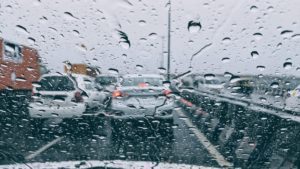Wet reckless is the term used by Virginia traffic defense attorneys when a defendant is found guilty of reckless driving where alcohol is involved. This happens most where a defendant is charged with a DUI, but in the final disposition (either by plea agreement or after a trial), the judge finds the defendant guilty of reckless driving and imposes penalties similar to those in a DUI conviction. A prosecutor may be willing to offer a plea agreement for a wet reckless outcome where it may be hard to prove a defendant’s blood alcohol level with certainty.

A wet reckless conviction is a reckless driving conviction, which does not carry the stigma that a DUI conviction has, even if both offenses are classified as misdemeanors. There is not a Code Section which authorizes “wet reckless.” Instead, VA Code § 46.2-392 authorizes that “any person convicted of a reckless driving offense which the court has reason to believe is alcohol-related or drug-related may be required as a condition of probation or otherwise to enter into and successfully complete an alcohol safety action program.”
Penalties for a wet reckless conviction are usually very similar to the penalties given for a DUI. This usually means a suspended license for up to 6 months (with the judge having discretion to give a restricted license), court required attendance at an alcohol safety action program such as VASAP, fines, and a possible jail sentence. One benefit of a wet reckless conviction is that a wet reckless conviction does not require that the driver install an ignition interlock device to qualify for a restricted license, but a DUI conviction does require the ignition interlock device.
It is important to note that you can be driving while intoxicated but be a “good” drunk driver with no “reckless” driving behavior. There is case law stating as such. So sometimes it is not wise to take a plea deal for a wet reckless since a judge might dismiss the case completely. So it is important to analyze each case specifically to see what the best defenses are in each scenario. Please give me a call at 757-384-4357 if you’d like a free consultation for your case.